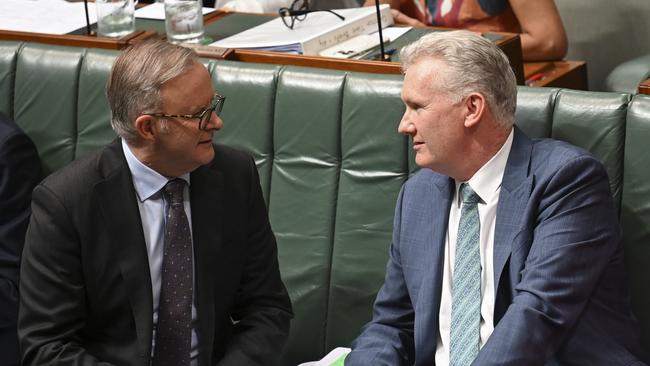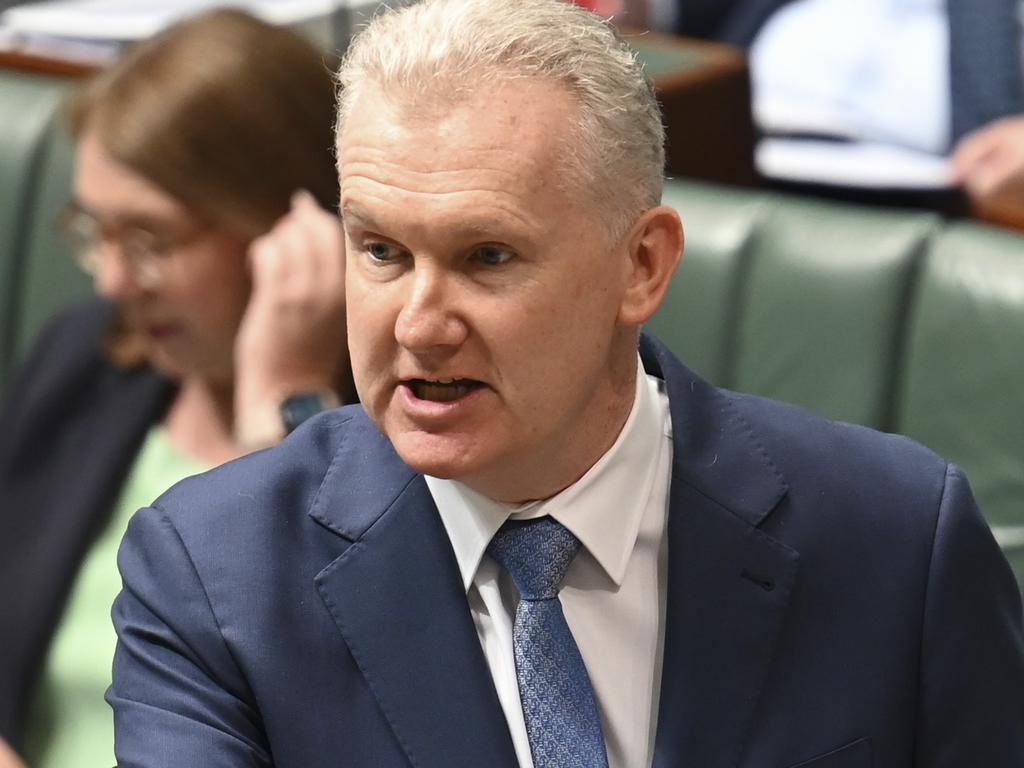Flawed IR reforms will only hurt Labor’s 2024 productivity drive

The burning question is, will there be any productivity gains from the raft of recent industrial relations changes or the further round of changes still being proposed? On that the federal government is silent because there are none. As in all complex change, the devil is in the detail and the ramifications are in actual workplaces.
Elements of what is currently in the bill before parliament should be abandoned. But even if the government presses ahead with all areas of proposed change, despite warnings from industry, there is a raft of sensible and workable amendments that need to be made to avoid unnecessary adverse consequences.
We look forward to maintaining clear lines of communication with the government and indeed stepping up our dialogue with the parliament on the troubling proposals for industry in the deeply flawed bill.
We already have seen major practical flaws emerge in the labour hire legislation passed in unseemly haste earlier this month. We hope for the sake of employers and employees that the flaws can be dealt with quickly, and we are working in good faith to that end.
Likewise, we are seeing significant issues emerge in the multi-party bargaining domain in parts of the care economy where the inevitable clash is playing out between the government’s wage aspirations and the fiscal reality that they are the ones on the hook for funding those increases. Significant parts of the largely government-funded care economy are being targeted by unions for multi-employer bargaining. Employers are seeking to clarify the scale of the wage increase that the government is willing to fund and what the impact will be on the budget. This undoubtedly will be a big issue next year.
Another major flashpoint next year will be the impact of the last-minute amendment to tie the hands of the Fair Work Commission, the independent umpire, so that it can resolve intractable bargaining disputes only by granting outcomes that favour unions and employees.
It is another nonsensical and ill-conceived concession to madcap union demands at the cost of our economy.

The intractable bargaining changes have the real potential to scuttle any capacity for enterprise bargaining to deliver productivity improvements or reasonable outcomes for industry in the future.
Unions will have little incentive genuinely to negotiate over issues at the workplace if they are guaranteed to only win if they head to the FWC instead of compromising. This is simply dumb. No productivity gains mean our economy and standard of living will inevitably go backwards. If the government doesn’t resile from this proposal it will become a notoriously problematic part of the industrial landscape. Industry is rightly outraged by this proposal that came from far left field.
We still have significant issues to work through with the government on its proposals around casuals, road transport, the gig economy and the crucial issue of which workers still will be able to be engaged as independent contractors. We will continue to talk constructively to the government on these issues.
In simple terms, we remain deeply concerned that unnecessary and overly complicated proposals regarding casual employment will unduly restrict the opportunities for employers to offer longer term and stable rosters to employees who choose to work casually.
On road transport, apart from the inevitable risk to the future viability of businesses engaging owner drivers from reheated proposals fallaciously cloaked in the guise of safety, there are real concerns about the impact on supply chains throughout the transport sector and industry more broadly.
On the gig economy proposals, we are pleased the government has taken up a range of proposals we worked through with our gig provider members. There is still more to be done and we look forward to that dialogue. Conversations with employers are turning more to belt tightening, cutbacks and deferring investment across the next year rather than growth. These proposed workplace measures are perhaps the major reason for the concern, despite the best efforts of a range of other government work to stimulate demand.
We recognise the government has aspirations but it needs to work with industry, not work against it, if it wants to make sure it doesn’t inadvertently blow up parts of the economy in the meantime. It is the same message for the parliament as whole, including the crossbench, which should be very mindful of the impact of these proposals on large and small business. Our economy is interconnected and when larger businesses are being whacked, so are their smaller suppliers.
Ultimately, it’s not just employers who suffer when businesses are driven to the wall. It’s their employees too.
Innes Willox is chief executive of Australian Industry Group.






Wherever I go, employers of millions of Australians have the same message. The totality of the proposed workplace relations changes before parliament in the Closing Loopholes Bill will only hurt productivity, employment, investment and training when the labour market is under increasing stress and parts of our economy barely have a pulse.